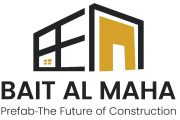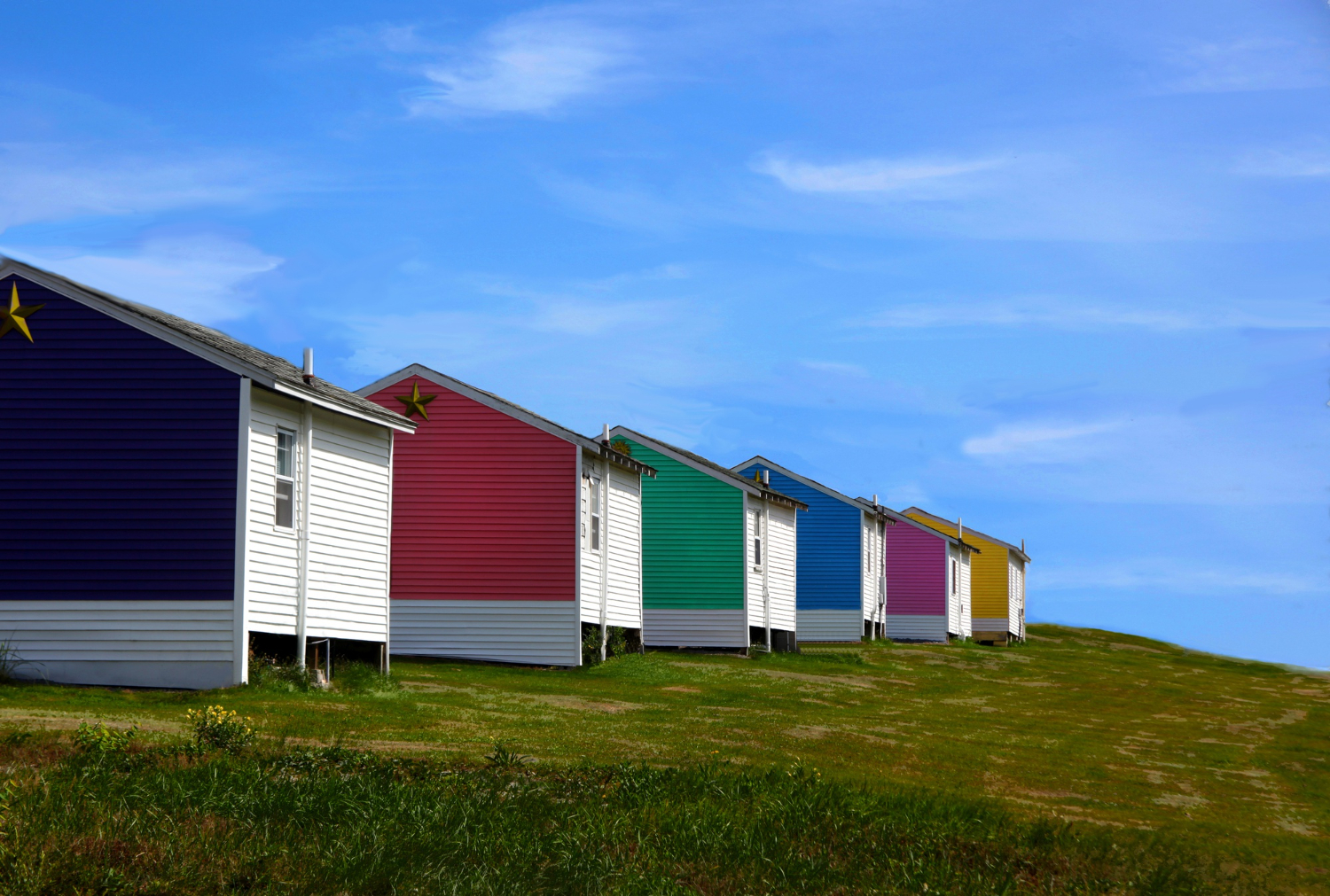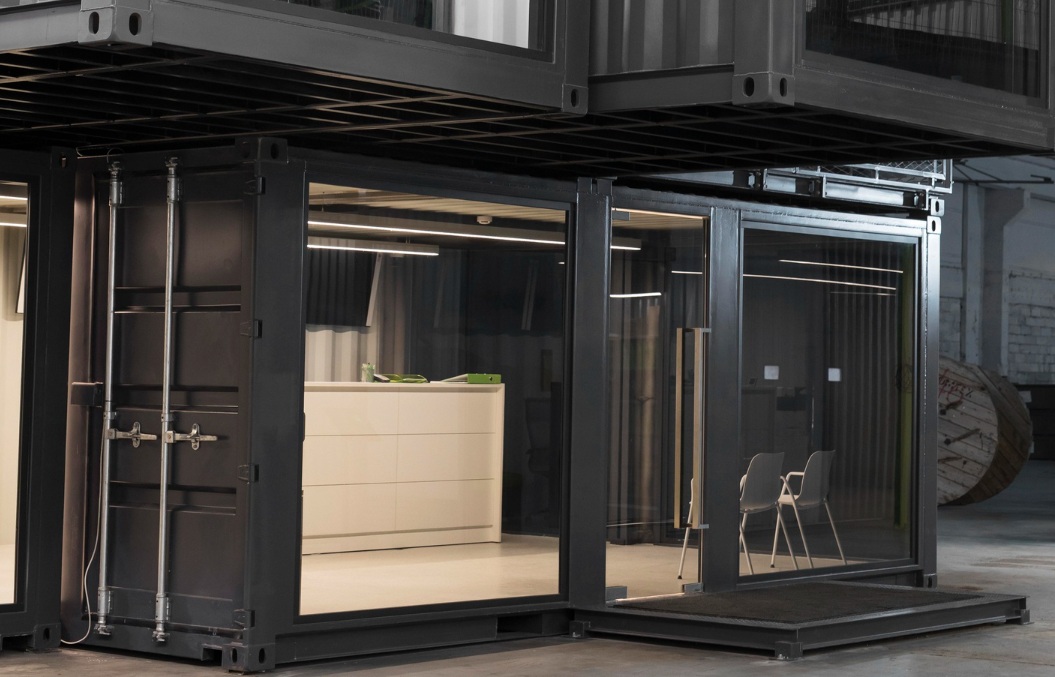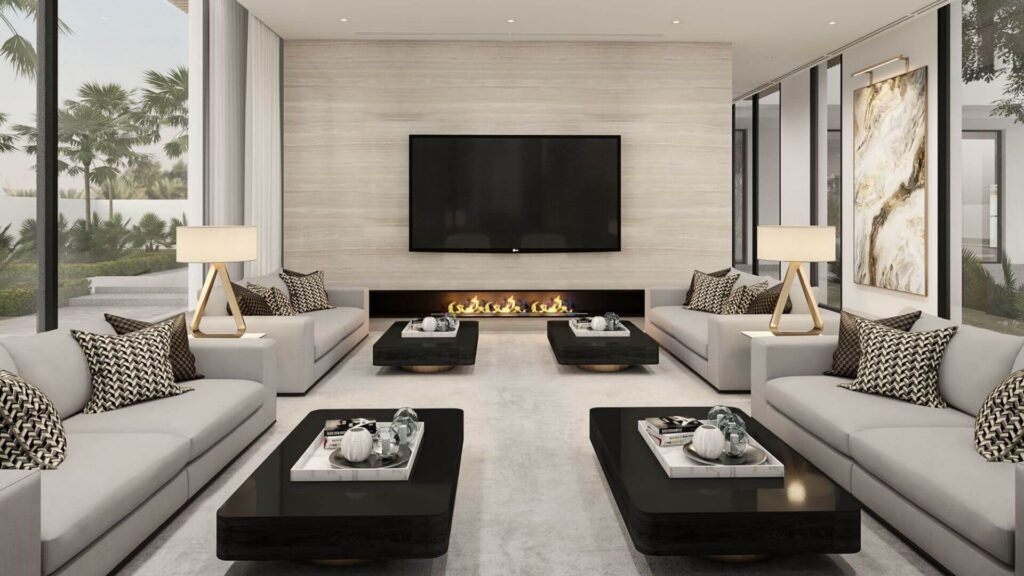In the heart of Dubai’s dynamic skyline, where innovation meets the desert’s unyielding ambition, modular construction has emerged as a cornerstone of progress. As a leading CICPA portacabin supplier, Bait Almaha stands at the forefront of this transformation, delivering Certified International Container Portable Accommodation (CICPA) solutions that blend durability, versatility, and modern design. These prefabricated units are not just structures; they are the backbone of temporary and semi-permanent spaces that fuel Dubai’s relentless growth in construction, events, and industrial sectors.
Dubai, with its visionary projects like Expo City and the expanding Palm Jumeirah developments, demands efficient, scalable building solutions. Traditional construction methods often fall short in the face of tight timelines and environmental challenges, but CICPA portacabins offer a seamless alternative. Engineered for the UAE’s harsh climate—scorching summers and occasional sandstorms—these cabins provide robust, weather-resistant shelters that can be deployed in days, not months.
At Bait Almaha, our commitment as a CICPA portacabin supplier extends beyond supply. We offer end-to-end support, from conceptualization to on-site integration, ensuring every project aligns with Dubai’s stringent building codes and sustainability goals. Whether you’re outfitting a bustling construction site, creating pop-up event spaces, or establishing remote workforce accommodations, CICPA portacabins deliver unparalleled value.
This comprehensive guide dives deep into the world of CICPA portacabins, exploring their design, applications, and advantages tailored to Dubai’s unique landscape. With over 10,000 words of in-depth insights, we’ll cover everything from manufacturing intricacies to eco-friendly innovations, helping you understand why Bait Almaha is the trusted partner for forward-thinking builders in the region. Let’s embark on this journey into modular excellence.
Understanding CICPA Portacabins: The Gold Standard in Modular Housing
CICPA portacabins represent a pinnacle in prefabricated technology, specifically designed to meet the rigorous demands of international standards while adapting to local needs in Dubai. The acronym stands for Certified International Container Portable Accommodation, a designation that underscores their compliance with global certifications like ISO 9001 for quality management and ISO 14001 for environmental practices. As a premier CICPA portacabin supplier, Bait Almaha ensures these units are not generic boxes but sophisticated, habitable environments ready for immediate use.
At their core, CICPA portacabins are constructed from high-grade steel frames that provide structural integrity without compromising portability. The outer cladding typically features insulated sandwich panels—layers of galvanized steel sandwiching polyurethane foam or rock wool for superior thermal efficiency. This design is particularly vital in Dubai, where daytime temperatures can soar above 45°C, and nighttime drops demand insulation that maintains comfort without excessive energy use.
The evolution of portacabins traces back to post-World War II Europe, where modular units housed displaced populations. In the UAE, their adoption surged during the 1970s oil boom, evolving into sophisticated solutions for the construction frenzy of the 2000s. Today, CICPA elevates this legacy with features like anti-corrosive coatings to combat coastal humidity and modular interlocking systems for easy expansion.
Key components include:
- Flooring: Elevated, anti-slip vinyl or epoxy-coated options that resist moisture and facilitate easy cleaning.
- Roofing: Sloped, self-draining galvanized sheets with integrated ventilation to prevent condensation.
- Windows and Doors: Double-glazed, UV-resistant units with optional security grilles, ensuring natural light while enhancing safety.
What sets CICPA apart is its focus on habitability. Unlike basic shipping container conversions, these portacabins incorporate ergonomic layouts, electrical wiring compliant with UAE’s DEWA standards, and plumbing ready for on-site hookup. For instance, a standard 20-foot CICPA unit can accommodate up to six workers with bunk beds, storage lockers, and a compact ablution area, all within a footprint of just 6×2.4 meters.
In Dubai’s context, where land scarcity drives vertical and horizontal expansion, CICPA portacabins shine in their stackability. Units can be piled up to three stories high with proper anchoring, creating multi-level accommodations for large-scale projects like the Dubai Creek Harbour developments. This modularity reduces land usage by up to 70% compared to conventional site offices, aligning with the city’s smart city initiatives.
Moreover, CICPA’s certification process involves third-party audits for fire resistance (up to 60 minutes per BS 476 standards) and seismic stability, crucial for UAE’s occasional tremors from regional fault lines. As a CICPA portacabin supplier, Bait Almaha conducts rigorous testing in our Dubai facility, simulating sand abrasion and extreme heat to guarantee performance.
Delving deeper, the internal ecosystem of a CICPA portacabin includes climate control via split AC units optimized for low energy draw, LED lighting for 24/7 visibility, and optional solar-ready roofing for off-grid capabilities. These features make them ideal for remote desert sites, such as those in the Rub’ al Khali fringes where Dubai’s solar farms are expanding.
The psychological benefits cannot be overlooked. Studies in modular living show that well-designed spaces reduce worker fatigue by 25%, boosting productivity on long-haul projects. In Dubai’s multicultural workforce, customizable interiors—think prayer spaces or communal kitchens—foster inclusivity, aligning with the emirate’s vision of harmonious urban living.
As we explore further, it’s clear that CICPA portacabins are more than temporary fixes; they are strategic assets in Dubai’s built environment. Their adaptability extends to aesthetics, with facade options mimicking local architecture, like arched windows echoing Islamic motifs, blending modernity with cultural resonance.
In summary, understanding CICPA portacabins means appreciating their role as versatile, certified powerhouses. Supplied exclusively through trusted channels like Bait Almaha, they empower Dubai’s dreamers to build faster, smarter, and greener.
The Evolution of Portacabins in Dubai’s Construction Landscape
Dubai’s construction sector, valued at over AED 200 billion annually, is a testament to human ingenuity against arid adversity. Portacabins entered this arena in the late 20th century, initially as rudimentary shelters for oil rig workers in the Gulf. By the 1990s, with the launch of mega-projects like the Burj Al Arab, they evolved into essential on-site hubs, and today, as a CICPA portacabin supplier, Bait Almaha is driving the next wave with advanced, integrated systems.
The journey began with basic steel boxes imported from Europe, but Dubai’s visionaries demanded more. The 2005 property boom saw portacabins repurposed for luxury event spaces at the Dubai International Film Festival, highlighting their potential beyond utility. Fast-forward to the Expo 2020 legacy—now Expo City—where modular units housed pavilions, showcasing sustainability through recyclable materials and zero-waste assembly.
Key milestones include:
- 1970s-1980s: Industrial Foundations – Portacabins supported Jebel Ali Port’s expansion, providing weatherproof storage amid dust storms.
- 1990s: Urban Boom – With Palm Island’s inception, they became mobile command centers, reducing setup time from weeks to days.
- 2000s: Diversification – Integration of HVAC systems catered to Dubai’s extreme climate, with units featuring sand-filtered air intakes.
- 2010s: Smart Integration – IoT-enabled portacabins for remote monitoring emerged, aligning with Dubai’s Smart City blueprint.
- 2020s: Sustainable Shift – Post-pandemic, CICPA models incorporate antimicrobial coatings and touchless features, responding to health protocols.
This evolution mirrors Dubai’s growth from trading post to global metropolis. The Real Estate Regulatory Agency (RERA) now mandates modular compliance for temporary structures, ensuring CICPA units meet wind load standards up to 150 km/h—vital for coastal sites like Bluewaters Island.
In the construction pipeline, portacabins have slashed project timelines by 40%, per industry reports. For the Mohammed bin Rashid Al Maktoum Solar Park, modular accommodations housed thousands of workers, minimizing environmental footprint through relocatable designs.
Challenges along the way included early corrosion issues from saline air, addressed by galvanization advancements in CICPA specs. Today, as Dubai eyes net-zero by 2050, portacabins are pivoting to green tech: solar panels, rainwater harvesting, and low-VOC paints reduce carbon emissions by 30% versus brick-and-mortar builds.
Bait Almaha’s role in this narrative is pivotal. Our Dubai-based fabrication hub leverages local talent, sourcing 80% of materials regionally to support UAE’s in-country value initiatives. We’ve supplied units for high-profile ventures like the Dubai Hills Estate, where stackable CICPA towers created vertical villages for site crews.
Looking ahead, the integration of AI for predictive maintenance and 3D-printed components promises even greater efficiency. In a city where 25% of global cranes operate, portacabins like CICPA ensure the human element thrives amid mechanical marvels.
This historical lens reveals portacabins not as stopgaps but as evolutionary enablers, with CICPA leading the charge in Dubai’s architectural renaissance.
Key Benefits of Choosing CICPA Portacabins in Dubai
The allure of CICPA portacabins lies in their multifaceted advantages, making them indispensable for Dubai’s fast-paced projects. As a dedicated CICPA portacabin supplier, Bait Almaha emphasizes benefits that translate to tangible ROI, from cost savings to enhanced safety.
First, mobility and flexibility stand out. Unlike fixed structures, CICPA units can be disassembled and relocated with minimal disruption, ideal for phased developments like the Dubai South logistics hub. This relocatability cuts relocation costs by 50% and allows reconfiguration for evolving needs—transform a site office into a training room overnight.
Second, rapid deployment is a game-changer. Factory-prebuilt, these cabins arrive 90% complete, requiring only crane placement and utility connections. In Dubai’s deadline-driven environment, this shaves weeks off timelines, as seen in event setups for the Dubai Shopping Festival.
Third, cost efficiency without compromise. By eliminating on-site labor and material waste, CICPA reduces overall expenses by 30-40%. High-quality insulation minimizes AC usage, yielding energy savings of 25% in Dubai’s heat.
Versatility ranks high too. CICPA portacabins adapt to myriad roles: executive suites with ergonomic furniture, medical clinics with HEPA filtration, or recreational hubs with gym equipment. Their modular nature supports expansions, like linking units for a 100-bed dormitory.
Durability is non-negotiable. Engineered for 20+ years of service, CICPA withstands UV degradation and salt corrosion, backed by warranties on structural elements. Fire-retardant materials meet Civil Defence standards, providing peace of mind.
Sustainability benefits are profound. Recyclable steel and low-embodied carbon designs align with Dubai’s Green Building Regulations. Optional green roofs support biodiversity, while energy-efficient LEDs cut electricity by 60%.
Health and safety features include non-slip floors, emergency exits, and ventilation exceeding ASHRAE guidelines, reducing accident risks by 35% on sites.
Aesthetically, CICPA elevates workspaces with customizable facades—think sleek metallic finishes echoing Dubai’s futuristic vibe. Ergonomic layouts boost morale, with natural light reducing eye strain.
Scalability ensures growth; start with one unit, scale to complexes. Compliance with local regs streamlines approvals, avoiding bureaucratic delays.
In essence, choosing CICPA means investing in efficiency, resilience, and innovation—benefits that propel Dubai’s projects to new heights.
Diverse Applications of CICPA Portacabins in Dubai
Dubai’s versatility as a global hub extends to how CICPA portacabins are deployed across sectors. As your reliable CICPA portacabin supplier, Bait Almaha tailors these units to fit seamlessly into construction, events, education, healthcare, and more.
In construction, CICPA shines as site offices and labor camps. For the Dubai Metro extensions, modular units provided secure, air-conditioned command posts, housing blueprints and teams amid dust. Their stackability creates multi-tier facilities, optimizing space on cramped lots like those in Business Bay.
For events and hospitality, CICPA transforms into VIP lounges or vendor booths. At the Dubai Airshow, pop-up cabins offered climate-controlled media centers, deployable in 24 hours and demountable post-event, minimizing waste.
In education, temporary classrooms equip schools during renovations. CICPA units at Dubai Knowledge Park feature interactive whiteboards and acoustic panels, ensuring uninterrupted learning for 30 students per cabin.
Healthcare applications include mobile clinics for remote areas. Equipped with exam tables and sterilization zones, they supported vaccination drives in Al Marmoom Desert, compliant with DHA guidelines.
Industrial uses cover warehouses and control rooms in Jebel Ali Free Zone. Insulated for machinery hum, CICPA withstands vibrations, with optional mezzanines for storage.
Remote workforce housing in oilfields near Dubai uses CICPA for dorms with en-suites, promoting welfare in harsh conditions.
Retail pop-ups at The Beach JBR leverage CICPA’s quick setup for seasonal shops, with glass fronts drawing footfall.
Emergency response sees CICPA as command posts for DEWA outages, with satellite connectivity for coordination.
Agriculture in Dubai’s hydroponic farms employs shaded units for control centers, protecting electronics from sun.
Tourism benefits from glamping pods in the desert, blending luxury with portability for overnight safaris.
Each application underscores CICPA’s adaptability, making Bait Almaha the go-to supplier for Dubai’s eclectic needs.
The Manufacturing Excellence Behind CICPA Portacabins
Crafting CICPA portacabins is an art of precision, rooted in Bait Almaha’s state-of-the-art Dubai facility. As a leading CICPA portacabin supplier, we adhere to a meticulous process that guarantees quality from raw material to final assembly.
It begins with design and engineering. Using CAD software, teams create blueprints compliant with UAE specs, simulating loads for Dubai’s winds. Materials selection follows: galvanized steel (S350GD grade) for frames, polyurethane for insulation (R-value 4.5), and PVC for interiors.
Frame fabrication involves laser-cutting steel beams, welded by robotic arms for uniformity. Panels are then sandwiched—steel-foam-steel—under hydraulic presses, ensuring airtight seals.
Insulation injection fills voids, while electrical conduits are pre-wired for 220V systems. Plumbing lines, using PPR pipes, are integrated for hot/cold water.
Interior fit-out adds flooring (laminate over plywood), ceilings (gypsum with recessed lights), and fixtures. Exteriors receive powder-coating for fade resistance.
Quality checks at every stage—ultrasonic welding tests, thermal imaging for leaks—culminate in load testing per ISO standards.
Packaging ensures transport readiness, with units craned onto flatbeds. This factory-controlled process minimizes defects, delivering excellence to Dubai’s sites.
Customization: Tailoring CICPA Portacabins to Your Vision
Customization is where CICPA portacabins truly excel, allowing Bait Almaha, as your CICPA portacabin supplier, to craft bespoke solutions for Dubai’s diverse projects.
Start with layout options: Open-plan for collaborative offices or partitioned for privacy, with sliding doors for flexibility.
Exterior enhancements include cladding in wood-effect composites or metallic panels mimicking Burj Khalifa’s gleam. Roofing can integrate green tech like solar tiles.
Interiors offer flooring from carpet to anti-static tiles, walls in fabric-wrapped panels for acoustics. Kitchens feature modular cabinets, bathrooms with eco-showers.
Tech integrations: Smart locks, CCTV, or Wi-Fi routers. Furniture packages range from minimalist to executive.
Aesthetic touches—LED mood lighting, branded murals—personalize spaces. For events, convertible layouts shift from lounge to stage.
This tailor-made approach ensures CICPA fits your narrative, from corporate to cultural.
Seamless Installation and Setup in the UAE
Installing CICPA portacabins in Dubai is streamlined, thanks to Bait Almaha’s expertise as a CICPA portacabin supplier. Site prep involves leveling ground and utility marking—often just gravel base for no-foundation units.
Delivery via low-loader trucks precedes crane offloading, with units positioned precisely. Connections follow: bolting frames, hooking electricity (DEWA-approved), and plumbing tie-ins.
Full setup takes 4-8 hours for a single unit, with teams ensuring alignment. Post-install, inspections confirm compliance.
In UAE’s terrain, from dunes to urban plots, this efficiency minimizes downtime, readying spaces for use swiftly.
Ensuring Longevity: Maintenance and Durability of CICPA Units
CICPA portacabins boast 25+ year lifespans, bolstered by Bait Almaha’s maintenance protocols as a CICPA portacabin supplier.
Durability stems from corrosion-resistant steel and UV-stable coatings. Regular checks—quarterly visual inspections, annual seal renewals—prevent issues.
Cleaning uses mild detergents; HVAC servicing ensures efficiency. Interior upkeep involves vacuuming and polish.
In Dubai’s climate, shade cloths extend facade life. Relocation refreshes units, extending utility.
Proactive care yields low downtime, maximizing value.
Sustainability at the Core: Eco-Friendly Features of CICPA Portacabins
Sustainability defines CICPA, with Bait Almaha leading as a CICPA portacabin supplier in Dubai’s green push.
Materials: 90% recyclable steel, low-VOC paints. Energy efficiency via insulation cuts AC by 40%.
Water-saving fixtures, solar compatibility reduce footprints. Modular design minimizes waste—95% reusable.
LEED-aligned, they support Dubai’s 2050 goals, from solar-integrated roofs to permeable bases for drainage.
Eco-innovations like rainwater systems make CICPA pioneers in sustainable modularity.
Real-World Success Stories and Case Studies
CICPA’s impact shines in Dubai projects supplied by Bait Almaha.
Case 1: Construction camp for Dubai Waterfront—200 units housed 1,000 workers, cut setup by 60%.
Case 2: Event pavilions at GITEX—modular booths boosted attendee flow.
Case 3: School expansions in Jumeirah—classrooms enabled seamless transitions.
These stories illustrate CICPA’s transformative power.
Why Bait Almaha is the Premier CICPA Portacabin Supplier in Dubai
Bait Almaha’s legacy in Dubai prefab cements our role as the top CICPA portacabin supplier. With local expertise, innovative designs, and client-centric service, we deliver unmatched reliability.
Our team’s deep UAE knowledge ensures tailored solutions, from consultations to aftercare.
Conclusion
Dubai’s relentless pursuit of innovation finds a perfect ally in CICPA portacabins, and Bait Almaha, as the premier CICPA portacabin supplier, is your trusted partner in this journey. These modular marvels are more than structures; they are catalysts for efficiency, sustainability, and adaptability, seamlessly integrating into the emirate’s ambitious projects—from towering construction sites to vibrant event spaces. With their rapid deployment, eco-friendly designs, and customizable features, CICPA portacabins empower builders, planners, and visionaries to meet tight deadlines while upholding Dubai’s high standards for safety and environmental responsibility. Whether you’re shaping the next iconic skyline or creating a temporary oasis in the desert, our solutions deliver unmatched reliability and value. Contact Bait Almaha today to explore how CICPA portacabins can transform your project, bringing your vision to life with speed, precision, and a commitment to a greener future.
Frequently Asked Questions
What makes CICPA portacabins unique compared to standard portacabins?
CICPA portacabins, supplied by Bait Almaha, stand out due to their Certified International Container Portable Accommodation designation, ensuring compliance with global standards like ISO 9001 and ISO 14001. They are engineered for Dubai’s extreme climate, featuring advanced insulation, anti-corrosive coatings, and modular designs that allow for rapid deployment and customization. Unlike standard portacabins, CICPA units offer stackability, fire resistance, and ergonomic interiors tailored for diverse applications, from construction sites to event spaces.
How long do CICPA portacabins last in Dubai’s harsh environment?
With proper maintenance, CICPA portacabins have a lifespan of over 25 years. Their durability stems from high-grade galvanized steel frames, UV-resistant coatings, and insulated panels that withstand Dubai’s scorching heat, humidity, and occasional sandstorms. Regular upkeep, such as quarterly inspections and seal renewals, ensures longevity, making them a cost-effective solution for long-term projects.
Are CICPA portacabins eco-friendly?
Absolutely. As a leading CICPA portacabin supplier, Bait Almaha integrates sustainability into every unit. Constructed with 90% recyclable steel, low-VOC paints, and energy-efficient insulation, CICPA portacabins reduce energy consumption by up to 40%. Features like solar-ready roofing, water-saving fixtures, and modular designs that minimize waste align with Dubai’s Green Building Regulations and the city’s net-zero ambitions by 2050.
Can CICPA portacabins be customized for specific needs?
Yes, customization is a hallmark of CICPA portacabins. Bait Almaha offers tailored layouts, from open-plan offices to partitioned dormitories, with options for exterior cladding, smart tech integrations (like CCTV or IoT sensors), and interior finishes such as anti-static flooring or acoustic panels. Aesthetic enhancements, including branded facades or cultural motifs, ensure alignment with your project’s vision.
How quickly can CICPA portacabins be installed in Dubai?
Installation is swift, typically taking 4-8 hours for a single unit. Pre-fabricated at Bait Almaha’s Dubai facility, units arrive 90% complete, requiring only crane placement, bolting, and utility connections. This efficiency suits Dubai’s fast-paced project timelines, whether for construction sites or pop-up events, with full compliance to local regulations like DEWA and Civil Defence standards.
Are CICPA portacabins suitable for remote locations in the UAE?
Yes, CICPA portacabins are ideal for remote sites, such as desert oilfields or solar farms in the Rub’ al Khali fringes. Their robust construction withstands harsh conditions, while optional features like solar panels and rainwater harvesting enable off-grid functionality. Stackable and relocatable designs make them perfect for temporary or semi-permanent setups in isolated areas.
Do CICPA portacabins meet Dubai’s safety and regulatory standards?
CICPA portacabins are rigorously tested to meet UAE’s stringent building codes, including fire resistance (up to 60 minutes per BS 476), seismic stability, and wind load capacity (up to 150 km/h). Bait Almaha ensures compliance with RERA, DEWA, and Civil Defence requirements, with third-party audits verifying safety features like emergency exits and non-slip flooring.
Can CICPA portacabins be used for permanent structures?
While designed for temporary and semi-permanent use, CICPA portacabins can function as long-term solutions due to their durability and adaptability. For instance, stacked units create multi-story accommodations, and customized interiors support uses like offices or clinics, making them viable for extended projects with proper maintenance.
How do CICPA portacabins contribute to worker welfare?
CICPA portacabins prioritize habitability with ergonomic designs, natural lighting, and climate control, reducing worker fatigue by up to 25%. Features like communal kitchens, prayer spaces, and antimicrobial coatings cater to Dubai’s multicultural workforce, fostering inclusivity and comfort in demanding environments.
How does Bait Almaha ensure quality as a CICPA portacabin supplier?
Bait Almaha’s Dubai-based manufacturing adheres to strict quality controls, from laser-cut steel frames to thermal imaging for insulation integrity. Every unit undergoes load testing per ISO standards, ensuring performance in Dubai’s climate. Our local expertise and end-to-end service—from design to aftercare—guarantee reliable, high-quality CICPA solutions.




